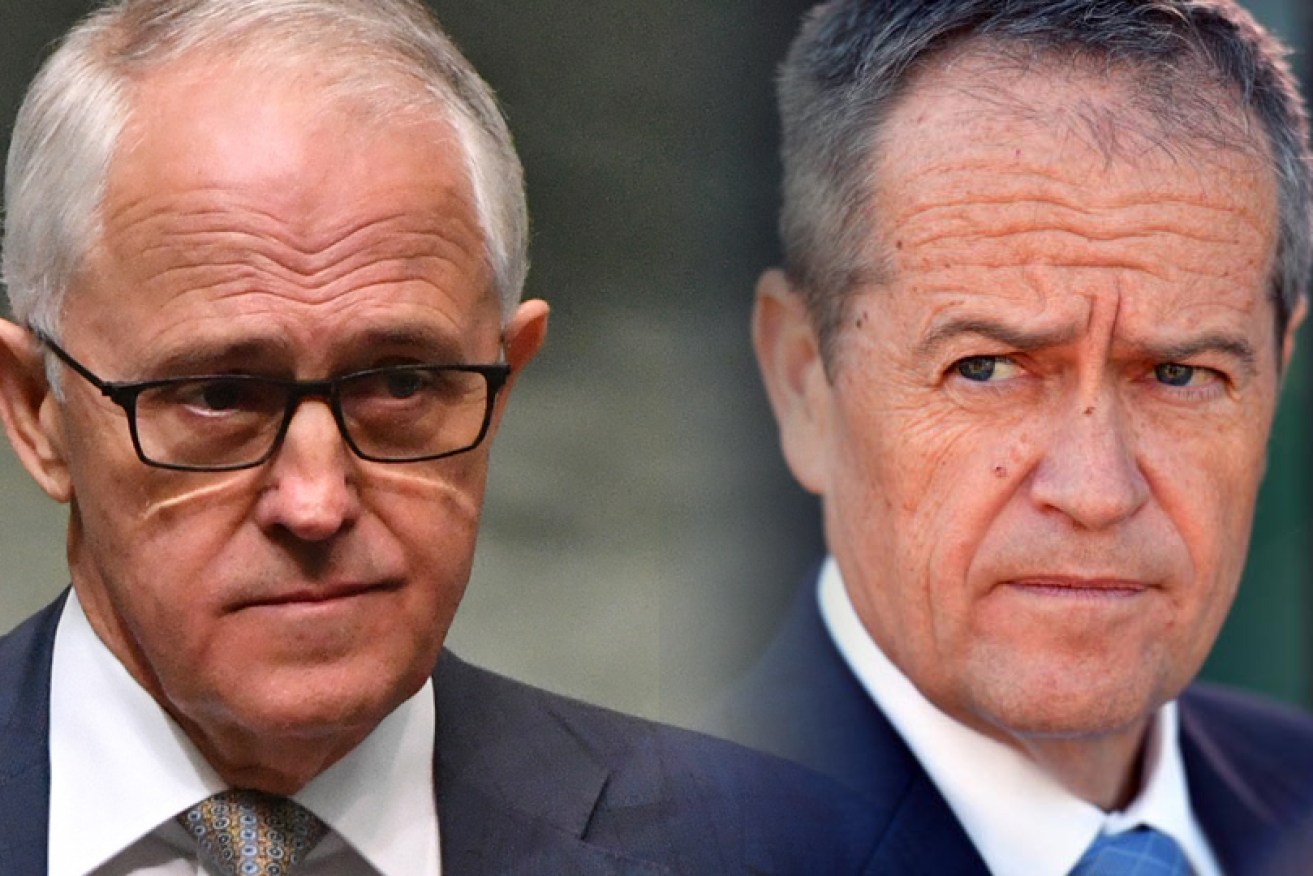Tax face-off takes voters for mugs


The Coalition is refusing to break up its tax cut bill. Photos: AAP
The take-it-or-leave-it proposition the government is putting to the Senate on personal income tax cuts is so brazen as to be breathtaking.
Boiled down it amounts to this: 10 million low- and middle-income earners will not get a tax cut now unless you pass the entire package, which delivers tax cuts to millionaires in seven years’ time.
The brazenness of it is precisely in the time frame. Seven years’ time, for starters, is two federal elections away. Future parliaments and governments cannot be bound by this one. All legislation can be amended or repealed. It is a regular occurrence.
In this space we only have to remember Paul Keating’s “L-A-W” tax cuts back in 1993. Economic circumstance meant they could not survive the first budget immediately after the election.
And yet here we are being asked to believe the assumptions of onward and upward economic growth: higher wages, no recessions and no negative impact from the emerging trade war between the world’s two biggest economies.
Undermining the credibility of this “comprehensive tax reform” is the implicit recognition the budget simply cannot afford it now. The real question is could it ever be afforded without massive repercussions for the provision of essential services.
This is pretending to commit a future government to a staggering $25 billion a year in lost revenue. That is the cost of stage three of the company tax cuts and all of the income tax package. As Labor’s Chris Bowen says, it is what Medicare costs every year.
Mr Bowen also points out the Treasurer has already forgone $44 billion by ditching his previous plan to raise the Medicare levy. That was to fund what he claimed was a shortfall in the National Disability Insurance Scheme.
It is not only the opposition warning that we are being asked to accept a magic pudding of higher wages, more jobs, a return to budget surplus and the biggest “income tax cuts” in our history.
Reputable economists like the Grattan Institute’s John Daley or Saul Eslake are shaking their heads in disbelief.
The only sane conclusion is the government is spoiling for a fight with Labor over tax cuts in the hope voters won’t be bothered with the fine print. And it may be right, but it risks taking too many of them for mugs.
Labor’s shadow cabinet wrestled with its options on Monday night. Some remember the pain the Kim Beazley-led opposition suffered when it opposed the Howard government’s tax cuts in 2005. They were piddling by comparison.
The numbers appear to be in the Senate to knock out the stage-three income tax cuts, which are delivered to the wealthiest individuals in 2026. But where the wheeling and dealing goes from there is very tricky.
If the government then rejects the amended bill in the lower house it could be seen to be blocking its own tax cuts to 10 million workers. It, of course, would blame Labor. Then it would come down to who voters believe especially in the five Super Saturday byelections in July.
An analysis of the latest Newspoll, the 34th consecutive loss by the government to create a new record – worse than the run of the unpopular Julia Gillard’s – suggests the Liberals are the ones short of credibility.
Holding voters to ransom now to what may or may not happen on the never never can hardly address that deficit.








